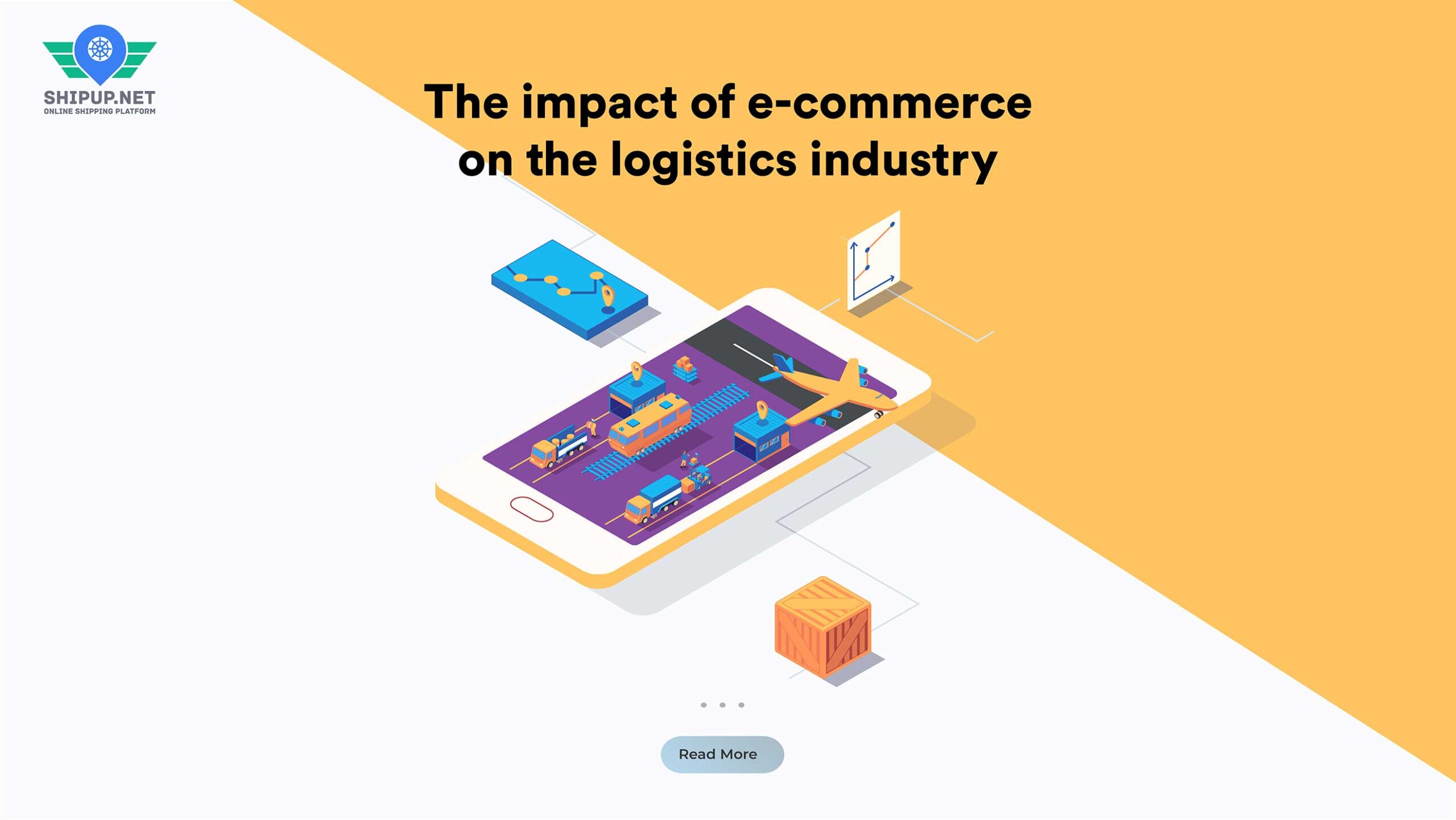Over the last decade, the e-commerce industry has seen tremendous growth and has revolutionized the way people shop. This growth has not only been beneficial for consumers but has also given rise to a new era of opportunities for the transportation and logistics industry. With giants like Amazon, Walmart and Alibaba leading the way, the logistics industry has expanded its operations and reached a wider audience.
The impact of e-commerce on the transportation and logistics industry has been immense. The need for efficient and quick delivery of products has forced logistics companies to optimize their supply chain operations. This has led to the implementation of new technologies like automated warehouses, drones and robots for product delivery. The use of these technologies has not only made deliveries faster but has also reduced the cost of transportation and increased efficiency.
The pandemic has further amplified the impact of e-commerce on the transportation and logistics industry. With the lockdown in place, people turned to online shopping for their daily necessities. This led to a surge in demand for delivery services, forcing logistics companies to operate at maximum capacity. To meet the high demand, logistics companies had to develop new strategies to optimize their delivery routes and reduce delivery times. E-commerce has not only transformed the way people shop but has also redefined the transportation and logistics industry, paving the way for new innovations and opportunities.
How E-commerce is Changing Customer Expectations and Logistics Operations
The rise of e-commerce has led to a significant shift in customer expectations when it comes to product delivery. Customers now expect deliveries to be made within a day or two, if not the same day, and logistics companies are adapting to these changing demands. To keep up with customer expectations, logistics companies are moving towards just-in-time delivery systems prioritizing speed and efficiency. As a result, there is an increasing preference for single warehouse locations over multiple storage facilities.
Freight forwarders are also altering their fleet composition to cope with the demands of e-commerce. Long-haul deliveries were the norm in the past, but now, more and more customers are ordering products that require short and frequent last-mile deliveries. This has led to an investment in smaller trucks and trailers that are better suited for these types of deliveries. By adapting their operations to meet the needs of e-commerce customers better, logistics companies are ensuring that they remain competitive in a rapidly evolving industry.
As logistics companies continue to adapt to the changing demands of e-commerce, the impact on the industry will be profound. The need for faster and more efficient delivery systems will drive innovation and push logistics companies to find new ways to optimize their operations. By investing in new technologies and strategies, logistics companies can ensure that they remain at the forefront of the industry and continue to provide the high level of service that customers expect.
E-commerce and the Increasing Focus on Last-Mile Delivery in Logistics
The impact of e-commerce on the logistics industry has been profound, and one of the most significant changes has been the increased focus on last-mile delivery. With more and more customers shopping online, there is a growing demand for fast and efficient delivery services that can get products to their doorstep as quickly as possible. As a result, independent freight forwarders are ramping up their last-mile delivery operations to compete with industry giants like Amazon.
Many freight forwarders are changing their fleet composition to better cope with the demands of last-mile logistics. Smaller vehicles, such as vans and bicycles, are becoming more popular, as they can navigate narrow streets and traffic congestion more easily than larger trucks. Additionally, many freight forwarders are investing in new technologies, such as route optimization software, to ensure that they can deliver products quickly and efficiently.
The increasing focus on last-mile delivery is not only beneficial for customers but also for the logistics industry as a whole. By improving last-mile delivery operations, logistics companies can increase customer satisfaction and loyalty, which can lead to increased revenue and growth. Additionally, the focus on last-mile delivery is driving innovation in the logistics industry as companies seek out new technologies and strategies to improve their operations.
The Impact of E-commerce on Air Freight in the Logistics Industry
The rapid growth of e-commerce has significantly impacted the logistics industry, including the increased use of air freight. As more and more customers turn to online shopping, the demand for fast and reliable delivery options has skyrocketed. Air cargo has become a popular choice for many logistics companies, as it offers the most reliable way of moving freight around the world.
One of the main challenges facing the air freight sector is the need for cargo capacity. However, this shortage of capacity has also been driven by the changes in shopping trends that have led to the rise of e-commerce. As more people shop online for their daily commodities, the demand for air freight has increased. To cope with this demand, logistics companies are turning to innovative solutions, such as investing in their own freighter planes.
Amazon is a prime example of a company tackling the air capacity shortage problem head-on. The retail giant has acquired its own freighter planes to ensure that it can meet the delivery demands of its customers. By investing in its own air freight capabilities, Amazon can guarantee faster and more reliable delivery times, which is essential in the highly competitive world of e-commerce.
The Impact of E-commerce on Reverse Logistics in the Logistics Industry
Another area of the logistics industry that has been impacted by the growth of e-commerce is reverse logistics. Reverse logistics refers to the post-sale activities that are done to optimize market activity. With online shopping becoming more popular, the need for effective reverse logistics solutions has become increasingly important.
One of the main challenges of reverse logistics is dealing with returns and exchanges. Online shoppers often return items for a variety of reasons, and logistics companies must come up with cost-effective return policies that meet the expectations of e-commerce retailers and their customers. To reduce expenses, sound processing and separation procedures for returned items are now being employed.
Information and end-to-end visibility are also key to effective reverse logistics. Logistics companies need to have access to real-time information about the status of returned items and their location. This information can be used to optimize the processing and transportation of returned items, resulting in faster and more efficient returns.
The Importance of Visibility in E-commerce Logistics
The growth of e-commerce has increased the need for end-to-end visibility in logistics. Customers expect updates on their shipment status until delivery, making visibility a critical factor in providing a seamless e-commerce experience. As a result, logistics service providers are investing in robust data-sharing systems, effective fleet management, and route optimization technologies.
Logistics companies are also reshaping their traditional strategies to better suit the interests of e-commerce retailers. The focus is now on providing end-to-end visibility, which enables logistics companies to track shipments from the point of origin to the point of delivery. This information can be used to optimize the transportation process, resulting in faster and more efficient delivery.
In addition to improving the customer experience, end-to-end visibility can also benefit logistics companies by reducing costs. By having real-time information about the status and location of shipments, logistics companies can optimize their routes and reduce unnecessary transportation, resulting in lower fuel costs and better resource utilization.
Adopting Digitization
The rise of e-commerce has transformed the logistics industry in numerous ways, and the adoption of digitization is one of the most significant changes. The use of Big Data solutions has become increasingly vital for logistics service providers to collect and analyze data in real time for better customer service. This helps freight forwarders to improve their operational efficiency and tailor their services to meet the changing demands of e-commerce customers.
Additionally, there has been a surge in the use of online payment methods, such as cards, mobiles, and net banking. Independent freight forwarders who cater to the e-commerce sector are also using online platforms to analyze market forecasts and customer expectations. This integration of mobile technology and online platforms is crucial for ensuring a seamless experience for customers and streamlining operations for logistics companies.
Furthermore, digitization has also led to the development of new technologies, such as route optimization and fleet management tools. These technologies enable logistics companies to optimize their operations, reduce costs, and improve efficiency. By embracing digitization, logistics companies can stay competitive in the fast-evolving e-commerce landscape and provide an enhanced experience for customers.


